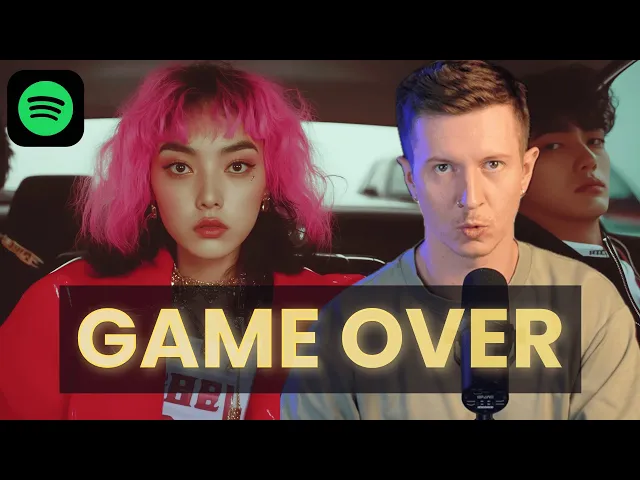Musicians Are DEAD! AI is Taking Over & Other INSANE AI NEWS!

AI music dominates the creative landscape
In a world where technological advancements continually reshape creative industries, artificial intelligence has made its most audacious move yet—straight into the recording studio. The latest developments in AI music generation have sparked both awe and apprehension among musicians, industry professionals, and listeners alike, raising profound questions about the future of human creativity in an increasingly automated artistic landscape.
AI music generation tools have rapidly evolved from novelty applications to sophisticated systems capable of mimicking artists' voices, composing original melodies, and potentially disrupting the entire music production ecosystem. This technological revolution isn't merely theoretical—it's actively reshaping how music is created, distributed, and monetized, with implications that extend far beyond simple automation.
Key insights from the AI music revolution
-
Voice cloning technology has reached unprecedented sophistication, enabling AI to recreate artists' vocal performances with remarkable accuracy—including deceased musicians—raising ethical questions about consent and artistic legacy.
-
The boundary between human and AI creativity continues to blur, with platforms like Suno AI and Udio generating complete songs from text prompts, potentially democratizing music creation while threatening traditional creative roles.
-
Major record labels and streaming platforms are adapting their policies to address AI-generated content, with some embracing the technology while others implement protective measures against unauthorized voice cloning and copyright infringement.
-
Legal frameworks around AI-generated music remain underdeveloped, creating a complex environment where artists struggle to protect their creative identities while technologists push innovation forward at breakneck speed.
-
The conversation around AI in music reflects broader tensions about artificial intelligence in creative fields, balancing excitement about new creative possibilities against fears of replacing human artistry and devaluing creative labor.
The voice cloning dilemma
The most provocative development in this space is undoubtedly the advancement in voice cloning technology. When an AI system can convincingly recreate Drake's distinctive vocal style or resurrect the voice of a deceased artist like John Lennon, we've crossed a threshold that demands serious ethical consideration. What makes this particularly significant isn't just the technical achievement, but how it fundamentally challenges our understanding of artistic identity and consent.
The music industry has historically been shaped by technological disruptions—from recorded sound to digital distribution—but voice cloning represents something fundamentally different. It doesn
Recent Videos
How To Earn MONEY With Images (No Bullsh*t)
Smart earnings from your image collection In today's digital economy, passive income streams have become increasingly accessible to creators with various skill sets. A recent YouTube video cuts through the hype to explore legitimate ways photographers, designers, and even casual smartphone users can monetize their image collections. The strategies outlined don't rely on unrealistic promises or complicated schemes—instead, they focus on established marketplaces with proven revenue potential for image creators. Key Points Stock photography platforms like Shutterstock, Adobe Stock, and Getty Images remain viable income sources when you understand their specific requirements and optimize your submissions accordingly. Specialized marketplaces focusing...
Oct 3, 2025New SHAPE SHIFTING AI Robot Is Freaking People Out
Liquid robots will change everything In the quiet labs of Carnegie Mellon University, scientists have created something that feels plucked from science fiction—a magnetic slime robot that can transform between liquid and solid states, slipping through tight spaces before reassembling on the other side. This technology, showcased in a recent YouTube video, represents a significant leap beyond traditional robotics into a realm where machines mimic not just animal movements, but their fundamental physical properties. While the internet might be buzzing with dystopian concerns about "shape-shifting terminators," the reality offers far more promising applications that could revolutionize medicine, rescue operations, and...
Oct 3, 2025How To Do Homeless AI Tiktok Trend (Tiktok Homeless AI Tutorial)
AI homeless trend raises ethical concerns In an era where social media trends evolve faster than we can comprehend them, TikTok's "homeless AI" trend has sparked both creative engagement and serious ethical questions. The trend, which involves using AI to transform ordinary photos into images depicting homelessness, has rapidly gained traction across the platform, with creators eagerly jumping on board to showcase their digital transformations. While the technical process is relatively straightforward, the implications of digitally "becoming homeless" for entertainment deserve careful consideration. The video tutorial provides a step-by-step guide on creating these AI-generated images, explaining how users can transform...
